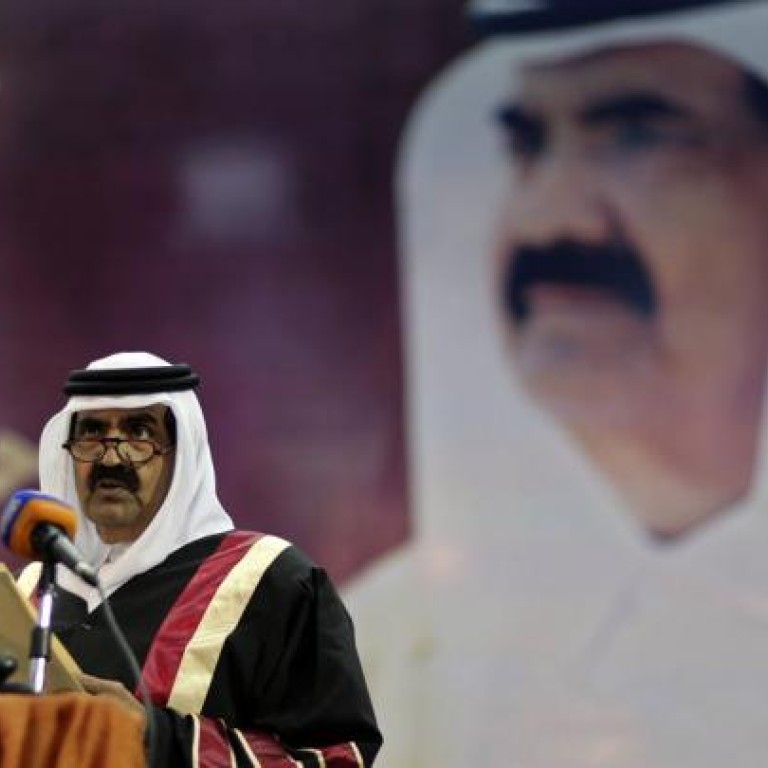
Qatar should be more peace maker, less power broker
Hamas is seen by some nations, Israel and the US among them, as a terrorist group. Arab countries do not, though, which is why the emir of Qatar this week became the first head of state to visit the Gaza Strip, the territory the militants seized in a dispute with Palestinian rivals Fatah in 2007. The landmark political recognition has infuriated Israel and Fatah and heightened concerns that Qatar has an Islamist agenda. But its track record would seem to point to a different reason: that it wants to be the Middle East's peace-maker. The emir, Sheikh Hamad bin Khalifa al-Thani, certainly gave that impression on Tuesday, accompanying a gift of US$400 million for infrastructure with a call for the Palestinians to heal their rift. The push is a continuation of efforts at the height of the Arab spring, when Qatar sent weapons to Libyan rebels, backed the now-ruling Muslim Brotherhood in Egypt and showed displeasure with Syrian President Bashar al-Assad's regime by being the first country to shut its embassy. It has since sought Assad's overthrow by force.
Such moves are a far cry from several years ago, when Qatar was arguably the Middle East's most neutral country, boasting friendly ties with governments from Israel to Iran to the US, whose troops it hosts. It has used its economic might and the emir's charismatic leadership to great effect as a peace broker in Yemen, Lebanon and Sudan. Through its television news network Al Jazeera, it has set high standards of coverage in a region where media freedom has been trampled on by autocratic governments.
But the nature of recent efforts has raised questions as to whether Qatar is now less a mediator than a political actor. In neutrality it had an edge as a peace broker; political intervention puts that reputation at risk. With no other government willing or able to take a leadership role in bridge-building between the region's autocrats, disparate groups and the Arab world and West, Qatar has a valuable role to play. Only by shelving self-interest can it be effective, though.

